Obsessive-compulsive disorder (OCD) is an anxiety disorder characterized by recurrent and persistent thoughts, impulses, or images (obsessions) that are intrusive and inappropriate, as well as repetitive behaviors (compulsions) that individuals feel driven to perform in response to the obsession, according to the Diagnostic and Statistical Manual of Mental Disorders 5th Edition (DSM-5). People with OCD can experience anxiety, depression, sleep problems, and social isolation. Identifying the signs and symptoms of OCD is important for early diagnosis and treatment. Early recognition of these signs can lead to more effective treatment and better outcomes.
What is Checking OCD?
Checking OCD is one of the most common subtypes of OCD (obsessive-compulsive disorder), involves a compelling urge to repeatedly check things, often the same item multiple times. Common behaviors include rechecking locks, ensuring appliances like ovens are turned off, or confirming nothing is left on the stove.
This disorder extends to double-checking routine tasks, documents, or emails, driven by a lack of trust in one's memory and a need to perform actions repeatedly to reduce anxiety. OCD, affecting an estimated 1.2% of adults, significantly disrupts daily life, hindering the ability to focus on tasks or proceed with activities until the checking rituals are satisfied. The actual prevalence may be higher, as many with OCD don't seek treatment.
What are the signs and symptoms of Checking OCD?
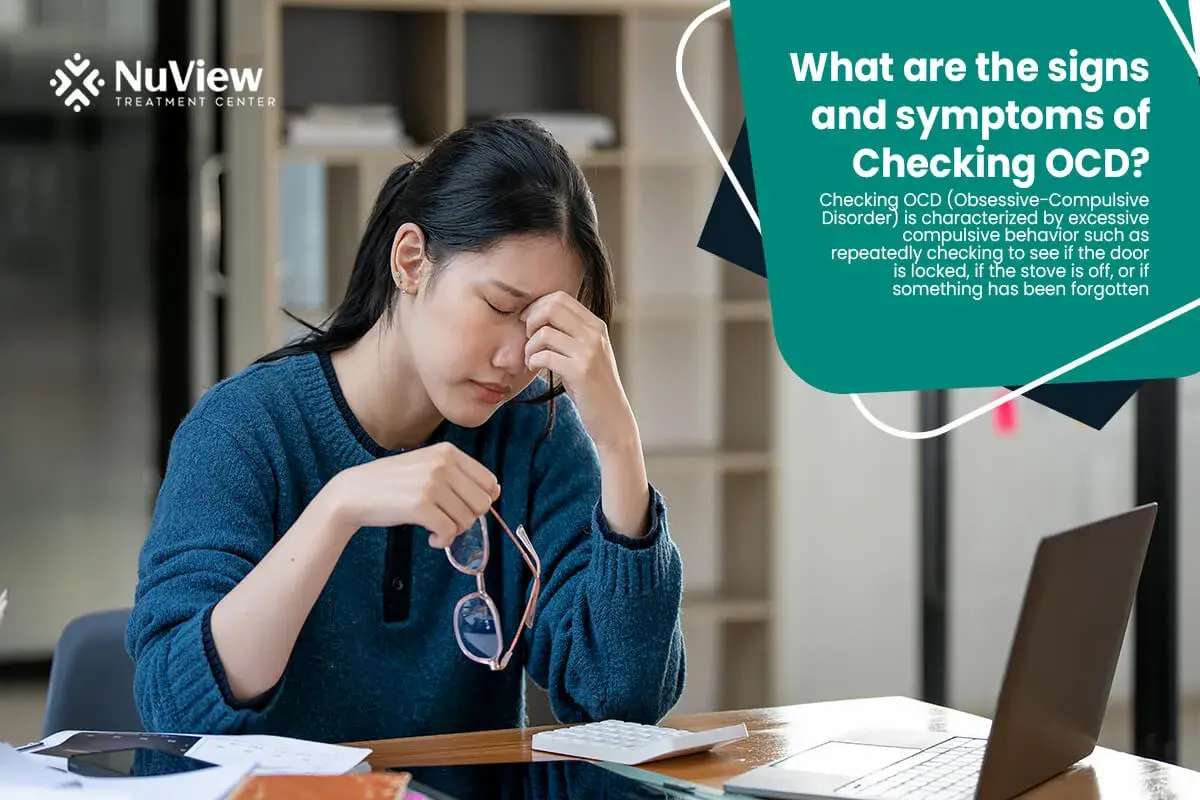
Checking OCD (Obsessive-Compulsive Disorder) is characterized by excessive compulsive behavior such as repeatedly checking to see if the door is locked, if the stove is off, or if something has been forgotten. Individuals with Checking OCD often know that their fears and compulsions are irrational, yet they feel powerless to resist them.
Common signs and symptoms of OCD include:
Spending excessive time checking or re-checking items such as locks, appliances, and documents.
Experiencing intense anxiety or fear when unable to check something multiple times.
Engaging in repetitive behaviors such as counting, tapping, or touching objects for reassurance.
Avoiding activities or situations that require checking for fear of making a mistake.
Becoming obsessed with thoughts or ideas related to checking.
Feeling compelled to check items multiple times even when there is no logical reason.
Checking OCD can interfere with daily activities and functioning, leading to feelings of guilt, shame, frustration, and despair. It's important to seek help from a mental health professional if you or someone you know is struggling with Checking OCD. With the right treatment, reducing symptoms and improving quality of life is possible. Therapy, medication, and lifestyle changes can all be used to manage Checking OCD and related symptoms.
What Are the Obsessions Related to Checking OCD?
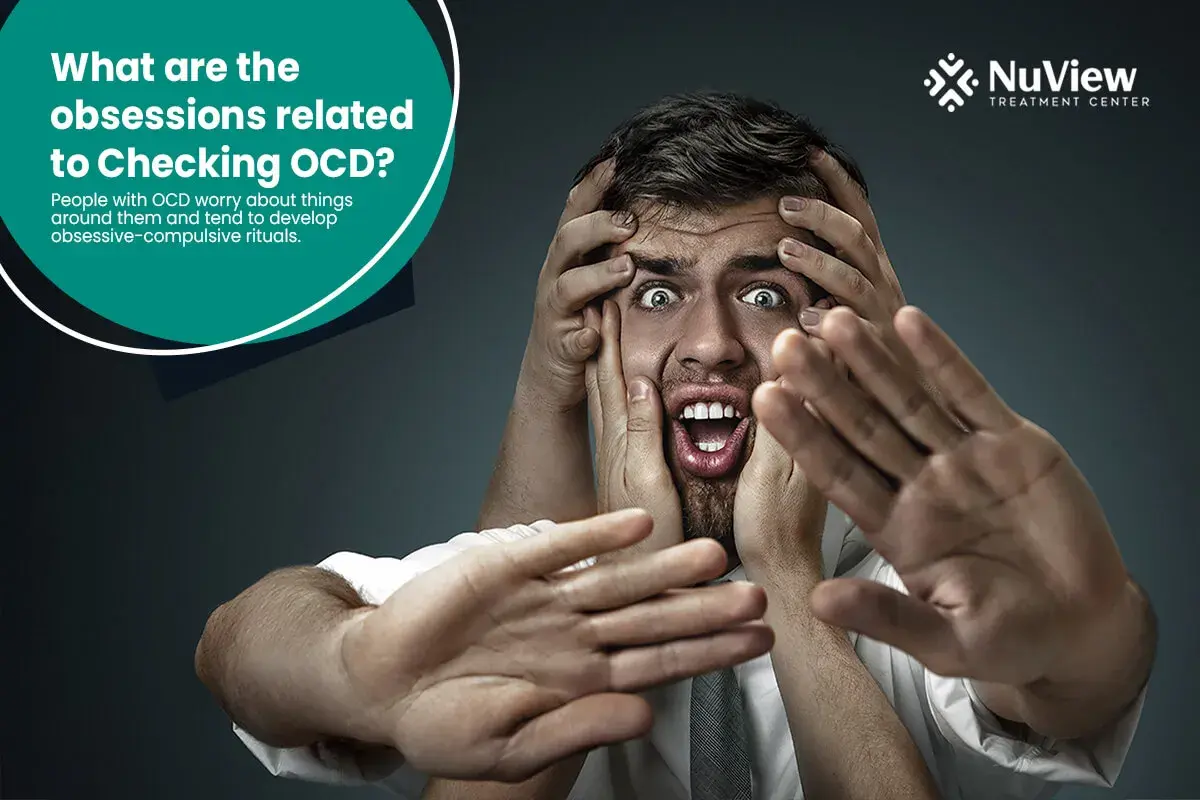
People with OCD worry about things around them and tend to develop obsessive-compulsive rituals. The obsessions associated with Checking OCD (Obsessive-Compulsive Disorder) are characterized as the following:
Fear of safety: Individuals with Checking OCD often have intense fears about safety, such as leaving doors unlocked, the stove on, or windows open, which could harm themselves or others.
Concerns about harm to others: Obsessions may involve worrying about causing harm, such as fearing they've inadvertently hit someone with their car or harmed a loved one.
Doubts about actions: People with this subtype of OCD may constantly doubt whether they've completed essential tasks, like turning off appliances or locking doors, even though they have no objective reason to doubt.
Fear of contamination: Some individuals with Checking OCD may obsess over potential contamination and repeatedly check for cleanliness or sterilization, which may not be related to physical safety but rather a fear of germs or illness.
The individual with Checking OCD may experience a sense of distrust of the senses when an item is not checked properly and may even find themselves avoiding situations that require checking. It's important to note that those suffering from Checking OCD do not necessarily need perfectionism; instead, the need to check is more about managing the fear of leaving something unchecked. The OCD obsessions associated with the illness can be extremely disruptive and stressful for individuals, hindering their ability to complete simple tasks or even enjoy activities they may have once enjoyed.
What Are the Compulsions Related to Checking OCD?
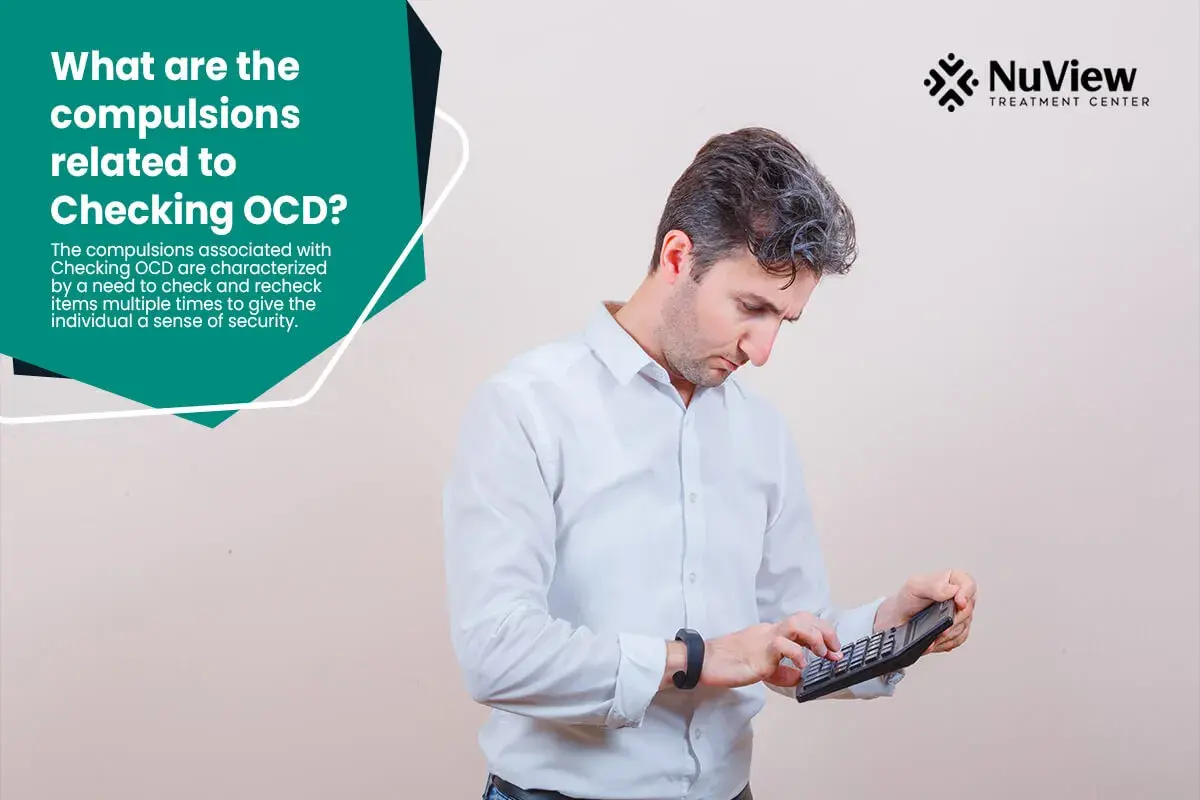
The compulsions associated with Checking OCD are characterized by a need to check and recheck items multiple times to give the individual a sense of security. OCD compulsions are categorized as:
Repetitive checking: This is the hallmark compulsion of Checking OCD. Individuals repeatedly check objects, locks, switches, and other items to ensure they are secure or turned off. They might check them multiple times in a specific, ritualistic manner.
Mental checking: Sometimes, the compulsions may not involve physical actions but rather mental rituals. People may mentally review their actions to ensure they haven't made a mistake or caused harm.
Seeking reassurance: Individuals may seek reassurance from others, like family members or friends, by repeatedly asking them to confirm that everything is safe and secure. This can be emotionally taxing for the person with OCD and their loved ones.
Avoidance: Some individuals may avoid situations that trigger their checking obsessions, which can significantly impact their daily lives and functioning.
Counting and numbering: People with Checking OCD may use counting or numbering behaviors to manage their anxiety, such as counting how many times they've checked something or assigning specific numbers to objects or actions.
Get Started With Nuview Treatment Center
Our dedicated professional staff is here to guide you or your loved one on the journey to lasting recovery, offering support every step of the way.
What Causes Checking OCD?
Checking OCD is believed to be caused by biological, psychological, and environmental factors. Certain genetic traits can make someone more likely to develop this form of Obsessive-Compulsive Disorder. In addition, events in one’s life, such as traumatic experiences or high-stress levels, can trigger the onset of Checking OCD.
People with Checking OCD tend to suffer an intense fear of harm or misfortune, leading them to check excessively. The person may feel anxious and unable to focus on anything else until they have gone through the ritual of checking for reassurance that everything is safe. They may also have a sense of doubt and a need for certainty, which can lead to further checking.
How To Overcome OCD Checking?
- Acknowledge the Behavior: Recognize and understand your checking rituals as part of OCD.
- Gradual Exposure: Slowly reduce the frequency and intensity of checking, exposing yourself to the anxiety in a controlled manner.
- Mindfulness Techniques: Practice mindfulness to stay present and reduce anxiety-driven behaviors.
Cognitive Behavioral Therapy (CBT): Seek professional help for CBT, focusing on changing thought patterns related to OCD. - Set Limits: Establish limits for checking behaviors (e.g., checking only once).
Delay and Distract: When the urge to check arises, delay the action and engage in a different activity. - Anxiety Management: Learn and practice anxiety management techniques like deep breathing or progressive muscle relaxation.
- Support Systems: Lean on support from friends, family, or support groups.
Consistency and - Patience: Be consistent with your strategies and patient with your progress.
Get Started With Nuview Treatment Center
How To Stop Double-Checking Everything?
To stop double-checking everything, practice awareness of your actions, and gradually reduce the frequency of checks. Challenge the necessity of rechecking, delay the urge when it arises, and work on building trust in your memory and actions. Mindfulness and stress management techniques can help, as can seeking professional help if needed.
Is Checking OCD Treatable?
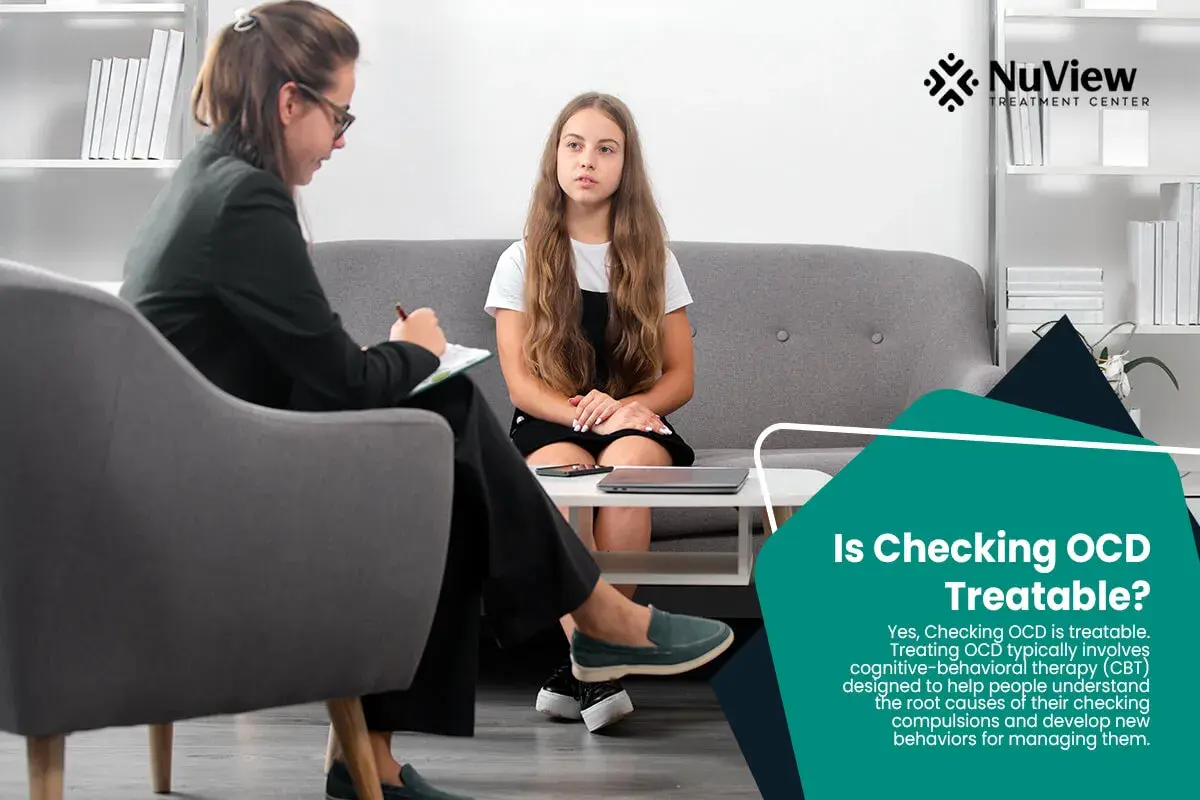
Yes, Checking OCD is treatable. Treating OCD typically involves cognitive-behavioral therapy (CBT) designed to help people understand the root causes of their checking compulsions and develop new behaviors for managing them. Medication may also be prescribed in combination with CBT if needed.
A few common OCD treatment methods are listed below:
Exposure and Response Prevention (ERP): This treatment involves gradually exposing the person to their checking compulsions while teaching them how to resist the urge to respond.
Cognitive Restructuring: This technique focuses on helping a person identify and challenge any thoughts or beliefs contributing to their checking compulsions.
Mindfulness Training: This involves teaching the person to practice awareness and accepting their thoughts, feelings, and urges without acting on them.
Relaxation Techniques: This can help a person manage stress or anxiety that often accompanies checking compulsions.
With proper treatment, many people find relief from their Checking OCD symptoms and can live happier, healthier lives. The patient can significantly improve their checking behavior with regular cognitive and behavioral practice.
What Are the Medications Used to Treat Checking OCD?
In some cases, medications may be used to help manage the symptoms of Checking OCD. Selective serotonin reuptake inhibitors (SSRIs) such as Prozac and Zoloft are the most widely recommended drugs for OCD. These medications are designed to increase serotonin levels in the brain, which can help reduce anxiety and compulsive behaviors. Other drugs for this condition include antipsychotics, tricyclic antidepressants, and benzodiazepines.
It's important to understand that medication should only be used with therapy and lifestyle changes, as the medications are not a cure for Checking OCD. Underlying psychological issues need to be addressed for long-term relief from symptoms. Additionally, working closely with a doctor when taking any medication is important, as these drugs can have serious side effects.
What Are the Therapies Used to Treat Checking OCD?
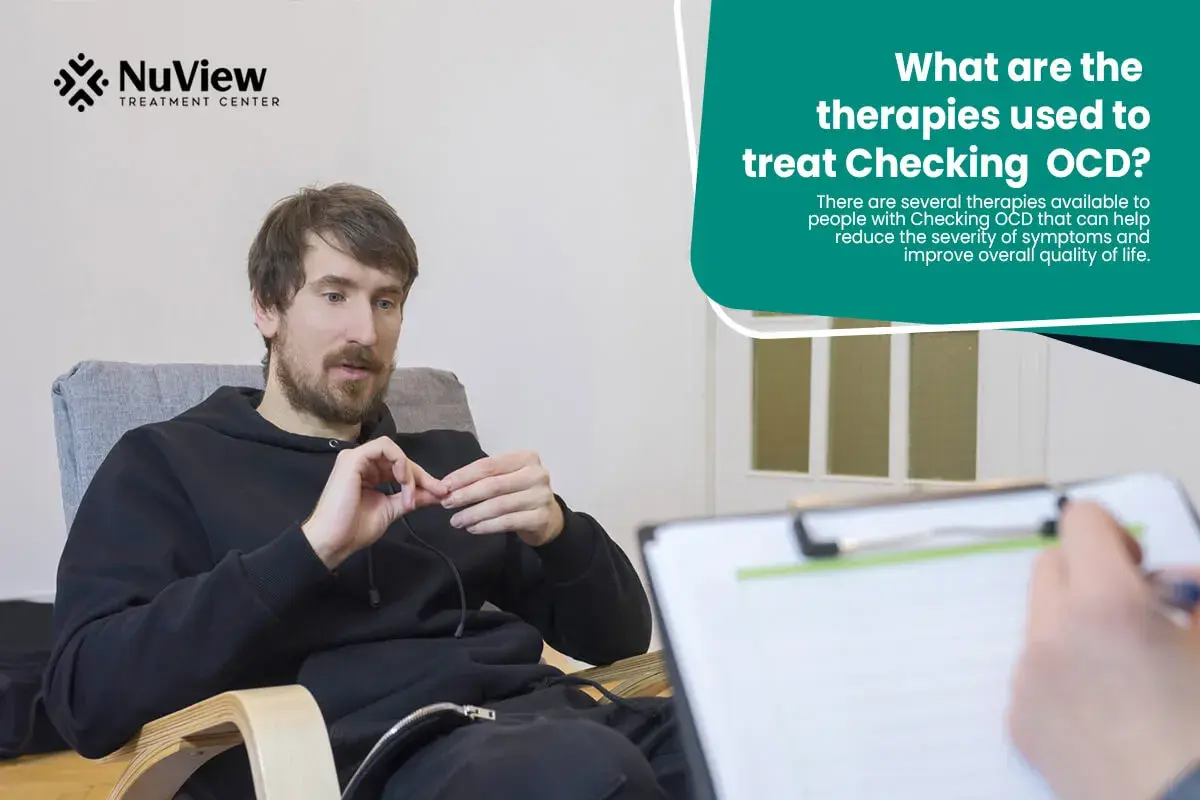
There are several therapies available to people with Checking OCD that can help reduce the severity of symptoms and improve overall quality of life. Some of the most common therapies are:
CBT for Checking OCD
Cognitive-behavioral therapy (CBT) is the most commonly used treatment for Checking OCD. CBT involves exploring underlying thoughts and beliefs that may contribute to checking compulsion, developing new strategies for managing anxiety, and responding differently to urges or triggers.
ERP for Checking OCD
Exposure and response prevention (ERP) is a type of CBT that focuses on gradually exposing the person to their checking compulsion while teaching them how to resist the urge to respond. This technique helps people become more comfortable with uncertainty by allowing them to experience anxiety without reacting compulsively.
ACT for Checking OCD
Acceptance and commitment therapy (ACT) is a type of psychotherapy that helps people become more accepting of their thoughts and feelings and encourages them to take action to make meaningful changes in their lives. This approach can help people with Checking OCD become aware of their inner experiences without acting on them.
Getting the Help You Need
Finding the right support is a foundation for managing Obsessive-Compulsive Disorder (OCD). It's not a challenge you need to face alone.
The support you seek should encompass understanding, expertise, and an individualized approach that acknowledges your unique experiences. This is where NuView Treatment Center comes in.
At NuView Treatment Center, we aim to empower you toward well-being. We offer the support, guidance, and tools to manage and treat OCD to lead a fulfilling life.
If you're ready to take that step towards a brighter future, don't hesitate to contact us for more details on how we can support you. Your well-being matters, and we're here to help.
Frequently Asked Questions
What triggers Checking OCD?
Checking OCD is often triggered by fear and uncertainty. Common triggers include situations or events involving high unpredictability or danger, such as flying in an airplane or driving on a highway. Other triggers may include specific objects, such as door locks or light switches, which can lead to checking behaviors if left uncertain.
Does Checking OCD ever go away?
Yes, Checking OCD can go away with proper treatment and lifestyle changes. It’s important to remember that everyone’s experience with the disorder differs; some people may find relief from symptoms more quickly than others. However, people can overcome their checking compulsions and live without unnecessary worry or fear.
How do I stop feeling dirty with OCD?
If you are feeling dirty with OCD, it’s important to remember that these thoughts and feelings are not based on reality. There may be underlying psychological issues contributing to the feeling of dirtiness, such as anxiety or fear. It can help to talk to a mental health professional about your experience and explore possible treatments for OCD. Additionally, it may be beneficial to practice self-care and mindfulness techniques to reduce stress and anxiety
Is Checking OCD a mental illness?
Yes, Checking OCD is a mental illness classified as an obsessive-compulsive disorder (OCD). It’s characterized by recurrent and persistent thoughts or urges to check something to achieve a sense of certainty or security. If left untreated, the condition can significantly negatively impact a person’s quality of life. Treatment typically involves some form of psychotherapy, medication, or a combination of the two.
How can I help someone with Checking OCD?
The best way to help someone with Checking OCD is to provide emotional support and understanding. Encouraging them to seek professional help from a mental health provider for treatment can also be beneficial. Additionally, you may want to offer practical assistance such as researching doctors or treatment centers, making appointments, and providing rides to and from appointments.
- What is Checking OCD?
- What are the signs and symptoms of Checking OCD?
- What Causes Checking OCD?
- How To Overcome OCD Checking?
- How To Stop Double-Checking Everything?
- Is Checking OCD Treatable?
- Getting the Help You Need
- Frequently Asked Questions
- What is Checking OCD?
- What are the signs and symptoms of Checking OCD?
- What Causes Checking OCD?
- How To Overcome OCD Checking?
- How To Stop Double-Checking Everything?
- Is Checking OCD Treatable?
- Getting the Help You Need
- Frequently Asked Questions
Get Help Today!
Toffulo, M. B., van den Hout, M. A., Engelhard, I. M., Hooge, I. T., & Cath, D. C. (2016). Patients With Obsessive-Compulsive Disorder Check Excessively in Response to Mild Uncertainty.Behavior therapy, 47(4), 550–559. https://doi.org/10.1016/j.beth.2016.04.002
Moreno-Amador, B., Piqueras, J. A., Rodríguez-Jiménez, T., Martínez-González, A. E., & Cervin, M. (2023). Measuring symptoms of obsessive-compulsive and related disorders using a single dimensional self-report scale.Frontiers in psychiatry, 14, 958015. https://doi.org/10.3389/fpsyt.2023.958015
Strauss, A. Y., Fradkin, I., McNally, R. J., Linkovski, O., Anhult, G. E., & Huppert, J. D. (2020). Why check? A meta-analysis of checking in obsessive-compulsive disorder: Threat vs. distrust of senses.Clinical psychulogy review, 75, 101807. https://doi.org/10.1016/j.cpr.2019.101807
Alculado, G. M., & Radomsky, A. S. (2011). Believe in yourself: Manipulating beliefs about memory causes checking.Behaviour research and therapy, 49(1), 42–49. https://doi.org/10.1016/j.brat.2010.10.001
Everyone is Welcome Here and We All Have Your Back
Your healing journey deserves a personalized approach. At NuView, we integrate expertise in behavioral therapy, mental health, and substance use treatment to create a customized recovery plan tailored to your unique needs.
Connect with our Admissions Specialists today.
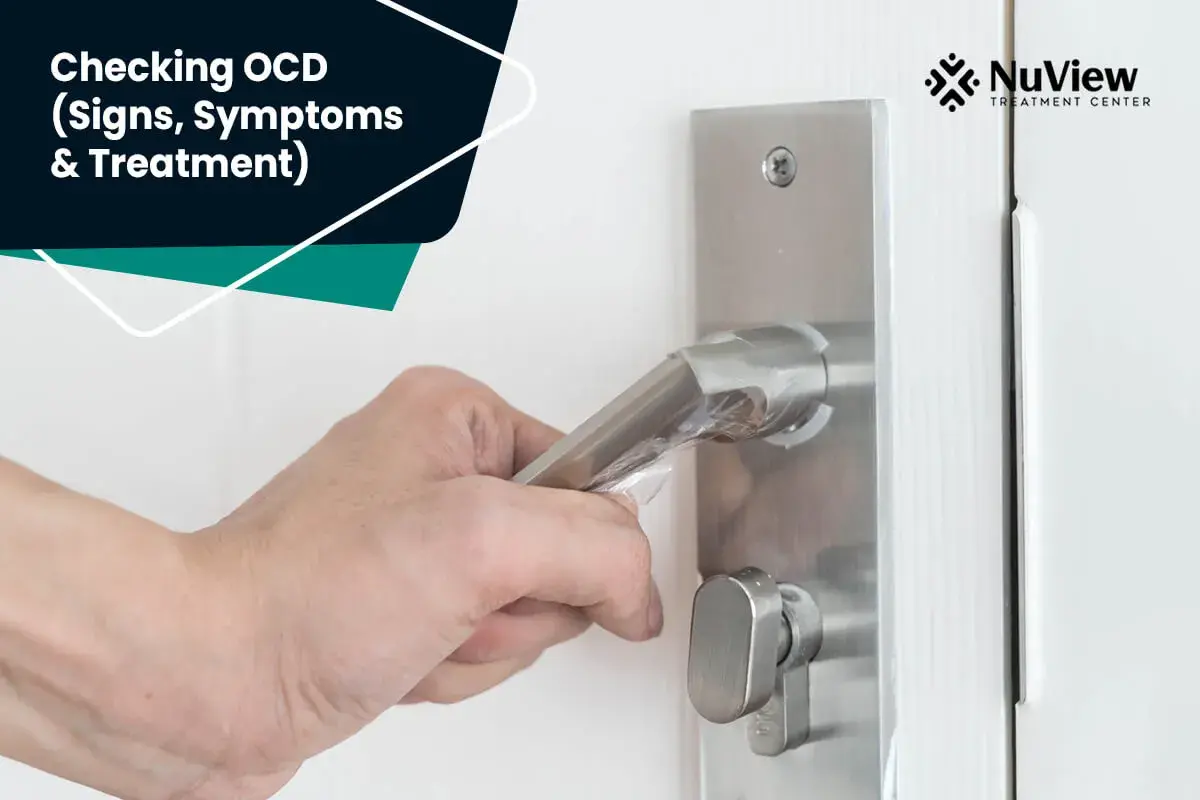
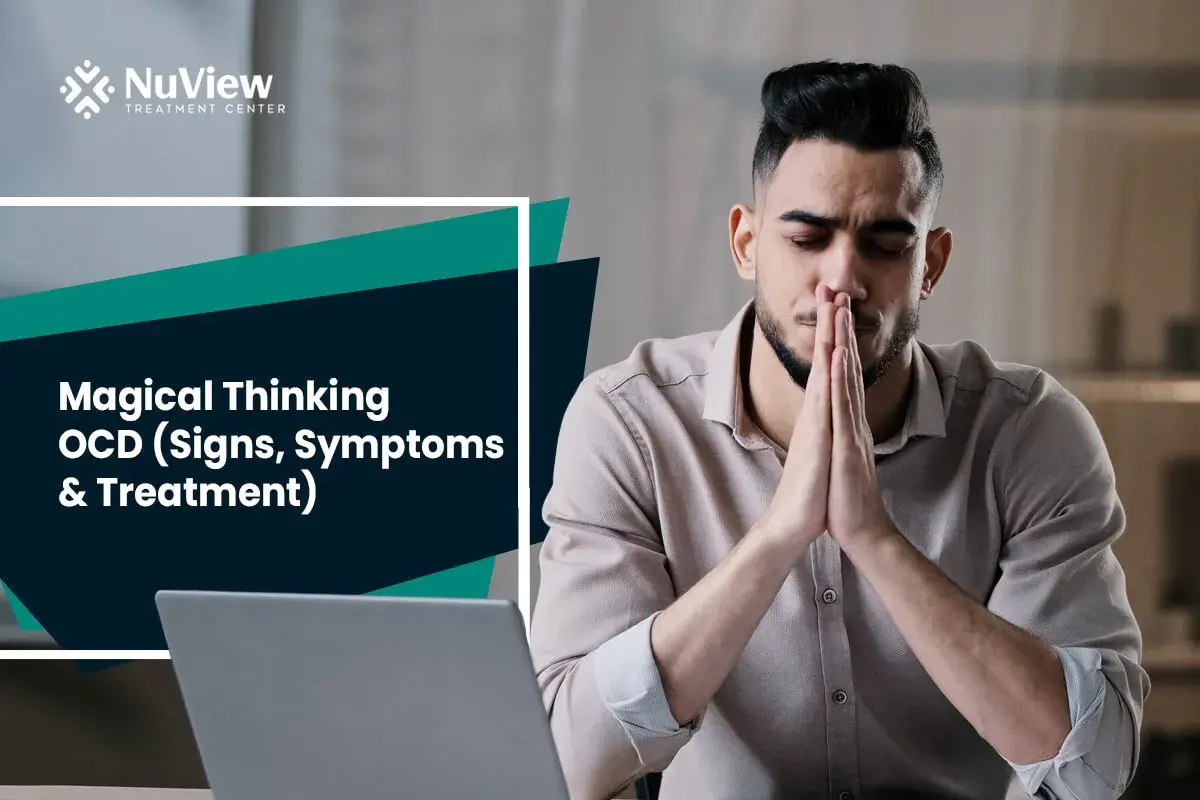
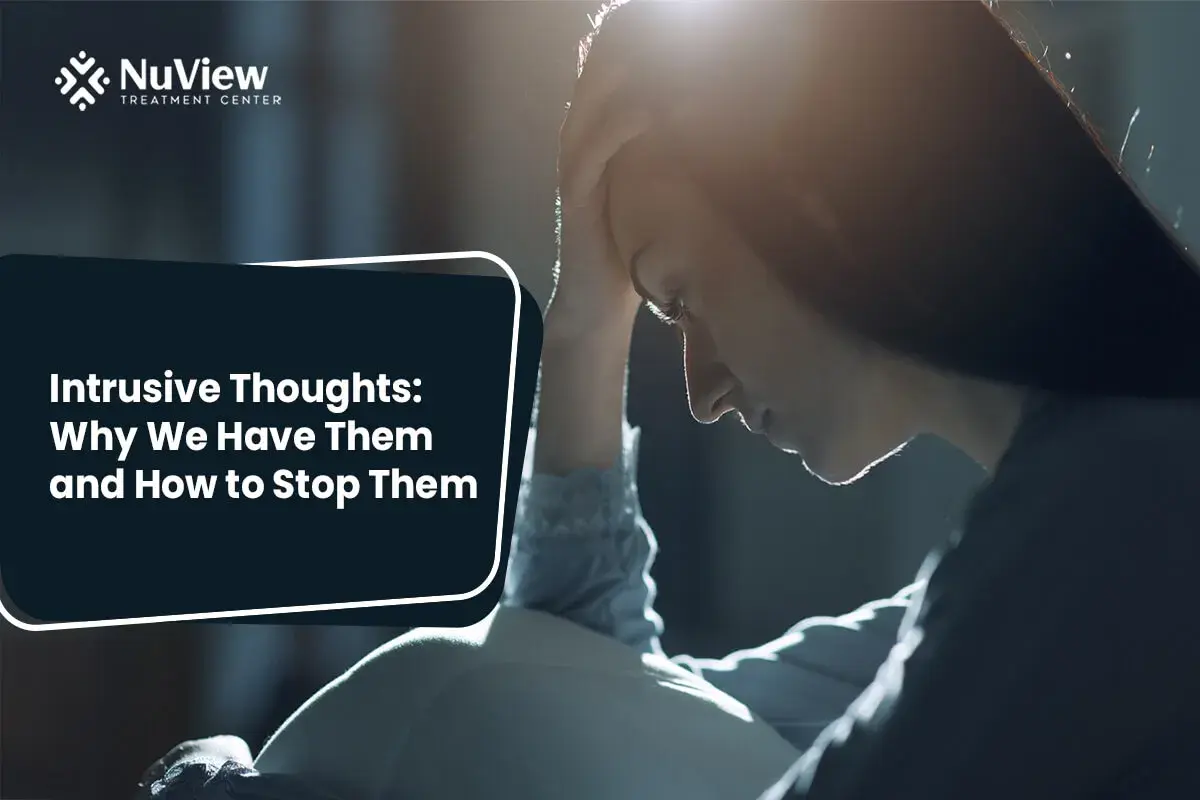
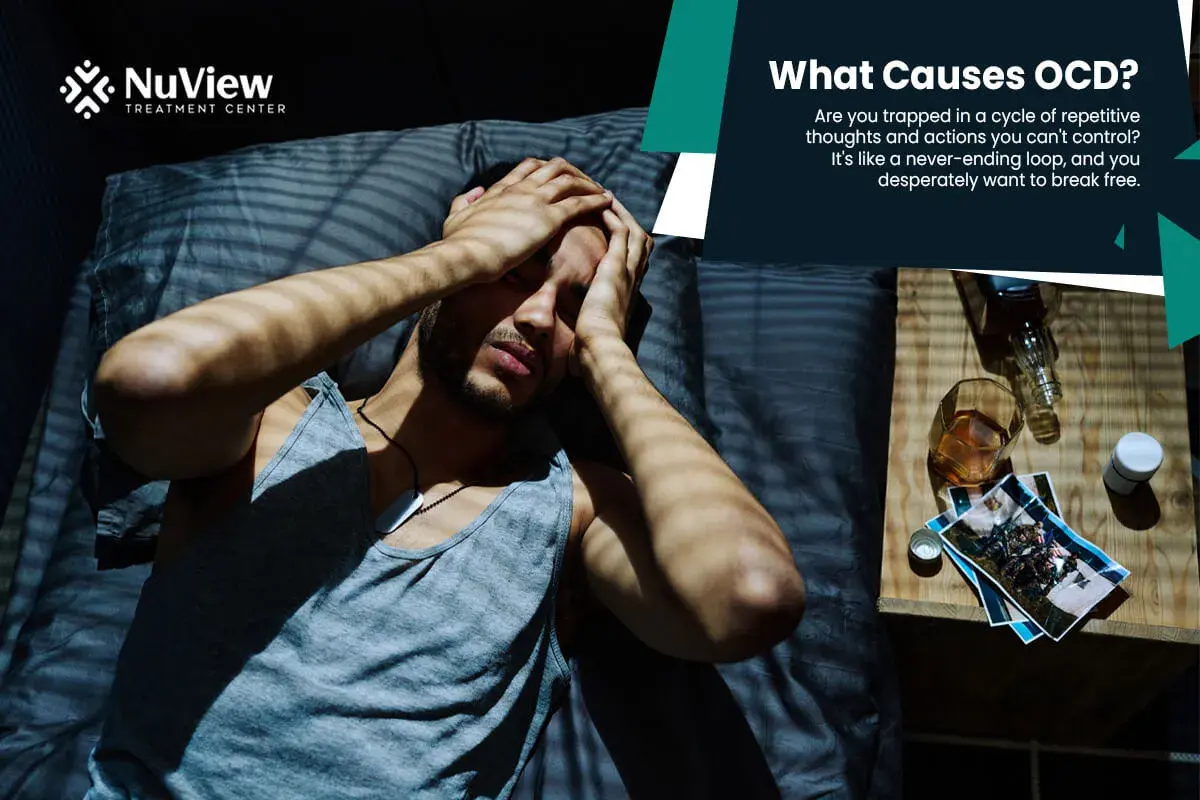



Written By
Dr. Ryan Peterson